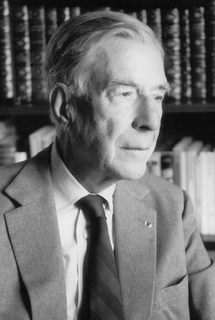 Much respect is due John K. Galbraith (October 15, 1908 – April 29, 2006), the kind of economist who writes texts that become so iconic that the fledgling undergrads who receive his work think he must be one of the legion of DWM (dead white males). Alas, it was last Sunday we lost him, at age 97, to the firmament where political-economic thinkers look down with optimized goggles and gaze down upon us masses in the asymmetrical universe. For those unfamiliar, JKG was something of a revolutionary against "classical economics"--which actually means that he added a bit of accuracy to it by questioning deeply a discipline he loved but in which he saw as much work to be done as potential to do good. Brad De Long, highlights (in Foreign Affairs):
Much respect is due John K. Galbraith (October 15, 1908 – April 29, 2006), the kind of economist who writes texts that become so iconic that the fledgling undergrads who receive his work think he must be one of the legion of DWM (dead white males). Alas, it was last Sunday we lost him, at age 97, to the firmament where political-economic thinkers look down with optimized goggles and gaze down upon us masses in the asymmetrical universe. For those unfamiliar, JKG was something of a revolutionary against "classical economics"--which actually means that he added a bit of accuracy to it by questioning deeply a discipline he loved but in which he saw as much work to be done as potential to do good. Brad De Long, highlights (in Foreign Affairs):
His work as an economist was a scattered but comprehensive attempt to think through the consequences of the transition from a nation of small farms and workshops to one of large factories and superstores. In doing so, he took on many of the questions most central to the new U.S. economic landscape: How much can advertising shape demand? In a world of passive shareholders, autonomous managers and engineers, and firm decisions that emerge out of internal bureaucratic contests, just what are the objectives that drive big firms? How does competition work when its principal dimensions are quality and marketing rather than price? And critically, how do the limits of polite discourse allow the system to hold itself together while constraining its flexibility?Let's keep asking good questions, in memoriam. I'll let the economist write a proper obit, economist's view suggests an excerpt from Stanley Brue's The Evolution of Economic Thought. (I would agree with a commenter there who wrote "John Kenneth Galbraith brought John Maynard Keynes' economic ideas (Keynesianism) to America. Whether that was a contribution or not is subject to a debate which I think is not quite finished.")




0 Comments:
Post a Comment